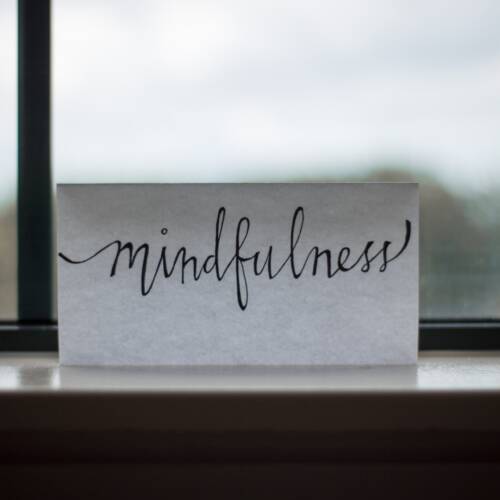
Start the New Year with 11 Techniques to Develop Self Awareness
13 Jan 2022A fundamental question we all ask ourselves at some point in our lives is, “who am I?”. The need to know who we are is not a new notion, in fact it’s as ancient as Socrates’ famous saying “know thyself”.
The practice of self reflection can feel daunting and uncomfortable for most of us. Usually, because it comes from a place of self judgement and criticism. However, in self knowledge lies liberation. As Ralph Ellison once said, “When I discover who I am, I’ll be free.”
Many think that self awareness is merely about asking ourselves why questions. In fact, a study has shown that even though most people believe they are self-aware, only 10-15% actually are.
In this article, we will discuss the what, why and how of being more self aware.
What is self awareness?
According to research, there are 2 types of self awareness:
- Internal self awareness, represents how clearly we see our own values, passions, aspirations, reactions (including thoughts, feelings, behaviors, strengths, and weaknesses), and how we fit with our environment and impact others.
- External self awareness, represents understanding how other people view us, in terms of those same factors listed above.
In other words, self awareness is a way of introspection, reflection and learning to be curious about our own mind and the world.
Why is it important to develop self awareness?
Developing an understanding of ourselves is foundational for cultivating emotional intelligence and living a life that comes from a place of authenticity and constant evolution.
There is a growing body of research that suggests that self-awareness is associated with higher job and relationship satisfaction, personal and social control, and happiness; and it is also negatively related to anxiety, stress, and depression.
How to develop self awareness?
The first step in the direction of becoming more self-aware is to increase our sensitivity to our emotions and instincts. Then, move on to explore our thoughts, beliefs, and biases.
This needs to come from a place of curiosity and compassion rather than a place of judgement and criticism. It is common for shame to creep up during this process. Remember, your emotions are data and not facts. Allow the emotion to pass and acknowledge how you feel. In addition, you can use the following techniques to increase your self awareness:
- Meditate; Mindful reflection is a powerful tool to develop your inner observer.
- Pay attention to what bothers you about other people; as it is usually a reflection of an unconscious personal bias.
- Learn a new skill; and observe yourself without judging your performance and the outcome. This is a great way to learn about your mind and how it ticks.
- Grounding techniques; practices like mindful walks in nature, focusing on your breath and feeling your feet on grass or soil can help ground you in your body and make you feel connected.
- Self-reflection; take time each evening to reflect on your behaviour for the day. Ask questions like “what can I learn from observing my behaviour today?”
- Journaling; coupling self reflection with journaling is a powerful way to understand yourself. It allows you to track the evolution of your feelings and thought patterns. It also serves as a helpful tool to release all of that heavy energy whirling in your mind out onto an external space.
- Write your values; core values answer the question: what’s most important to me? When you become aware of your personal values, you can evaluate if you’re living in accordance with them.
- Personal vision; we all have an ideal future self that we are striving towards. Jotting down your future goals and aspirations helps you ensure that you’re in alignment with that vision.
- Shadow work; every aspect of our character we identify with has an opposing quality that lives within our unconscious. We, as humans, are complex creatures with opposing tensions within us. Shadow work seeks to bring these opposing qualities to light so they no longer influence our behaviour.
- Observe others; we are all more alike than we are different. In observing other people, you can often learn a great deal about your own behaviour.
- Ask for feedback; choose a couple of trusted friends and ask them for honest feedback on how they see you. This technique helps you understand your blind spots and improve your external self awareness.
Think of self awareness as meeting someone for the first time and putting the effort into knowing and understanding them. It is the process of shining light and connecting your body, emotions, and thoughts to help you live a more authentic life. If you let it, self awareness can lead you to build a relationship with your inner self, make peace with your inner critic and even heal your inner child.
References:
- scottjeffrey.com/self-awareness-activities-exercises/
- hbr.org/2015/02/5-ways-to-become-more-self-aware
- nickwignall.com/self-awareness/
- positivepsychology.com/building-self-awareness-activities/
- nbcnews.com/better/lifestyle/what-self-awareness-how-can-you-cultivate-it-ncna1067721#anchor-8Keepcheckinginwithyourselfandalistoffeelin














